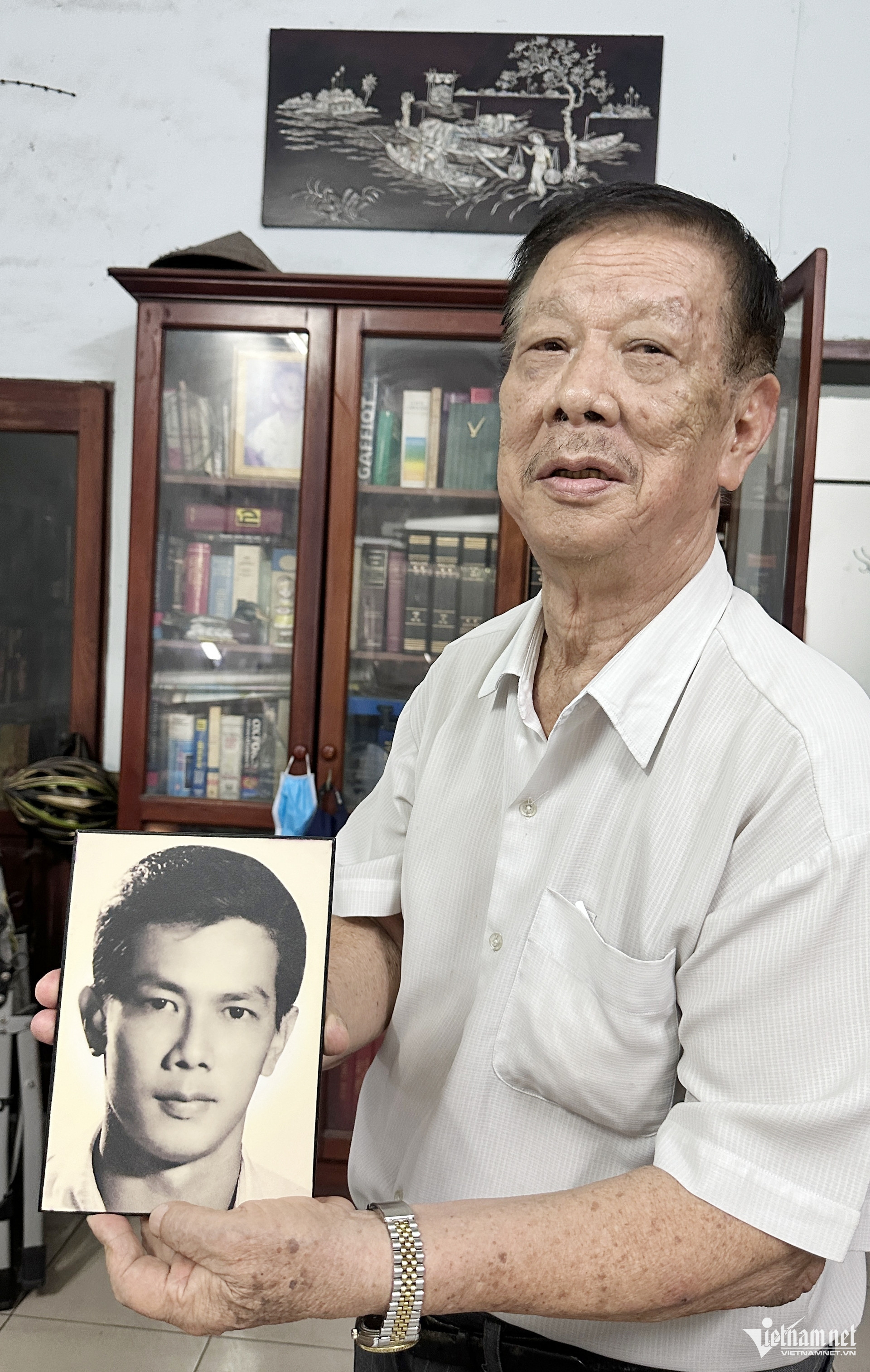Fifty years after the historic victory of April 30, 1975, Vietnam is entering a new era - “building a glorious future for the nation.” To commemorate this milestone, VietNamNet presents a special series titled "April 30 - A New Era", featuring reflections and lessons from military experts, historians, and living witnesses of the war for national liberation.
Among them is lawyer Trieu Quoc Manh, now in his 80s. A native Saigonese with a lawyer’s intellect and a patriot’s courage, he speaks little about the past - but his actions during a pivotal moment in Vietnamese history speak volumes.
A strategic acceptance at a critical hour

In his modest home on Nguyen Tri Phuong Street in District 10, Ho Chi Minh City, Manh reflected on his clandestine revolutionary activities. He recounted a pivotal meeting on April 25, 1975, where he was summoned by General Duong Van Minh, then preparing to take the presidency of the Republic of Vietnam.
“I walked into a room with about twenty people. General Minh pointed at me and said, ‘That’s the kind of general we need to deal with them!’” Manh recalled.
Presented with three positions - Chief of the National Police Command, the Saigon-Gia Dinh Metropolitan Police, or City Governor - Manh chose the Saigon-Gia Dinh police, knowing it would give him the best chance to act.
Though only 34 years old, Manh had already built a distinguished career. A law graduate and PhD in economics, he was the youngest judge in the Saigon judiciary and later Deputy Chief Prosecutor with broad authority over the police.
He had secretly joined the revolution in 1966 and was a member of the Saigon-Gia Dinh Liberation Front’s intellectual operations unit.
Dismantling the police and freeing political prisoners

At 3 p.m. on April 28, 1975, Duong Van Minh officially became President. The History of the Ho Chi Minh City Party Committee (1930–1975) confirms that Manh - undercover revolutionary and respected legal authority - was appointed Chief of the Saigon-Gia Dinh Metropolitan Police.
Knowing he had only a narrow window to act, Manh used his status and reputation to assert control. Arriving in plain clothes but in a car bearing a brigadier general’s flag, he summoned all district police commanders and issued critical orders.
“I said: ‘Under orders from the president, I am now your commander. Every move you make from here on must go through me. We are at war, and this is non-negotiable.’”
He disbanded the F unit - special police forces - and declared that any captured liberation soldiers were to be handed directly to him. He also commanded the immediate release of all political prisoners.
“I told Colonel Lam Chanh Nghia to compile a full list of all prisoners - ‘Not one name missing!’ I ordered. Then I signed their release,” Manh said.
When officers requested guidance on armed engagement, he ordered: “No firing first! No troop movement!”
Later that day, Deputy National Police Commander Colonel Pham Kim Quy called for instructions. Manh again ordered the release of all political prisoners. Guards threw keys into cells, letting the inmates free themselves.
As word spread, police officers eagerly returned home to protect their families. The city’s police force - about 17,000 strong - dissolved peacefully.
“I had fulfilled my mission and the duty of an intellectual and revolutionary soldier,” Manh said.
He also praised the civic spirit of Saigonese in those final days. Many officials remained at their posts until the end. Vacated homes were left tidy, not looted - a testament, he said, to the moral fiber of the city.
Manh’s legacy beyond liberation

After reunification, Trieu Quoc Manh returned to law. He became one of Ho Chi Minh City’s most respected attorneys, defending numerous major cases and serving as a member of the Vietnam Fatherland Front Committee.
From 1988 to 1995, he served as Head of the Ho Chi Minh City Bar Association, Head of the Legal Committee of the People's Council, and Law Department Chair at the University of Ho Chi Minh City - training future generations of lawyers during the country’s renewal era.
Between 1996 and 1998, he was an arbitrator at the International Arbitration Court. He now leads M&C Law Office.
Though retired, Manh continues to work at the same desk he has used for decades. He lives simply, without a mobile phone, and spends his days with family, reading, and offering free legal advice to the underprivileged.
Bao Anh